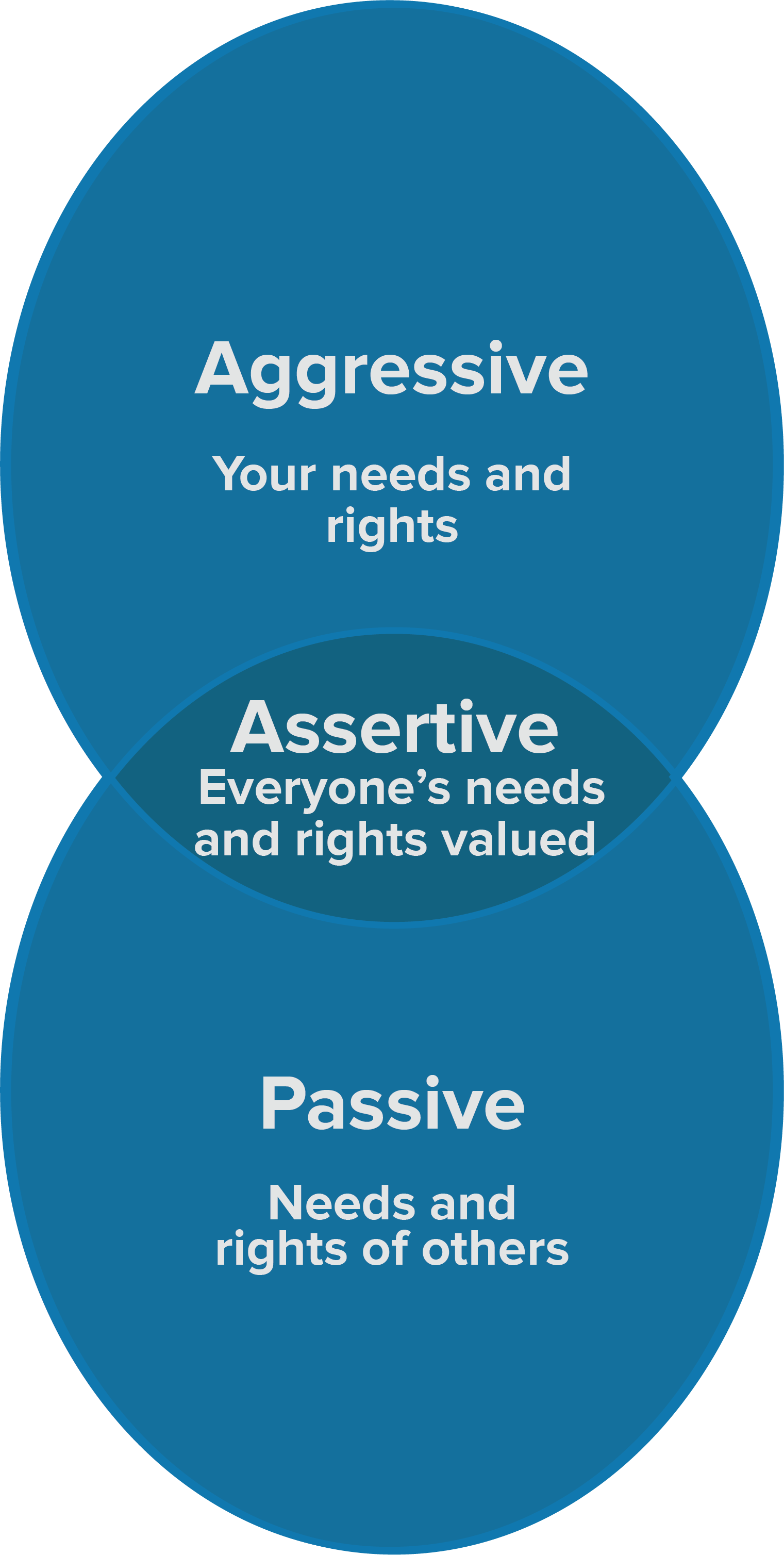Becoming a Self-Manager
Assertive Communication
Updated Aug 7, 2019
Swipe right to go to the next slide
Part of being a self manager is learning how to express your needs and limits to others in a clear and respectful way. The term for this is assertive communication.
In this article, you will learn some assertiveness basics and how to access other assertiveness resources.

Sometimes to understand assertiveness, it is helpful to understand what it isn’t.
Aggressive communication: You value your rights and needs over others’, avoid compromise, and maybe even shout or get physical.
Passive communication: You value the rights of others over your own, and let others ignore or take advantage of you.
Passive-aggressive communication: You value your rights and needs over others’, but try to get your way while avoiding confrontation.
Assertive communication: Balances your rights and needs with others’ in a way that is clear, direct, and respectful.
Having a concussion often involves symptoms and limitations that are invisible to others. They can’t know what you are experiencing, or what you can and can’t do, unless you tell them. Learning assertive communication allows you to express your needs and feelings in a clear, respectful way. It could mean learning to say "no," or telling your friends that you will need to leave early if you attend the party.
Good assertive communication takes practice. Here are some assertiveness tips:
If you feel developing assertive communication skills is an area you could use some assistance, Bounce Back [webpage] is an excellent resource to get started.
You will need to register for a free account on the site. Under Optional Modules, there is a module on developing assertive communication skills. This module includes a video, an e-book, rules for assertiveness, and worksheets.

Here are some excellent resources from the Centre of Clinical Interventions [webpage].
The site offers a free workbook on developing assertiveness - “what it is, what stops us from being assertive and how to be assertive”. The information is organized into modules and designed to be worked in sequence.
Remember, it is important to practice pacing. You may want to skim the information first, and then work through the modules at a pace that works for you.

Click the button above to toggle between light mode and dark mode. This toggle can also be found in the menu.
Hold
and tap
to zoom in.
Hold
and tap
to zoom out.
Hold
and tap
to zoom in.
Hold
and tap
to zoom out.
On most mobile devices, you can spread to zoom.
Increase your text size in your device settings.
Remember to take regular breaks while exploring MyGuide: Concussion.
Vancouver Coastal Health’s MyGuide Concussion Team would love to hear your feedback! It matters to us and helps to improve the experience for future users. Your responses will be kept anonymous and your privacy is a top priority. To complete a 15-20 minute online survey or request a telephone survey, please click the link below.